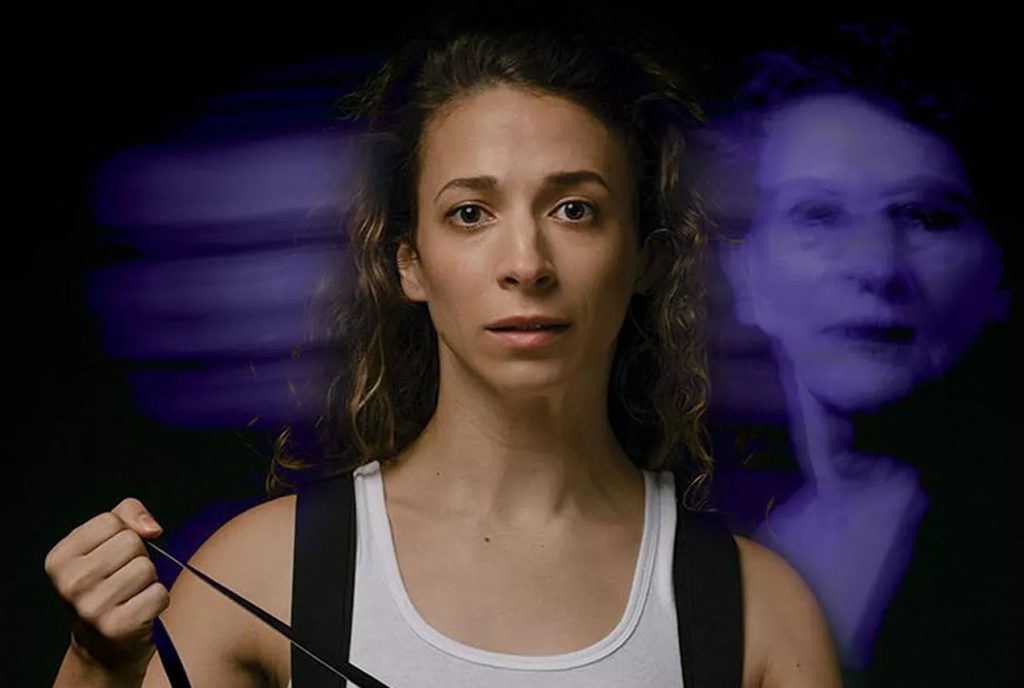I have been a fan of the classic Barbra Streisand adaptation of 1978 Nobel Prize playwright Isaac Bashevis Singer’s Yiddish short story for as long as I can remember (indeed, does any gay man of a certain age not instantly know what is being referred to when the phrase “Papa, can you hear me?” is uttered???). However, this straight play of the classic story is nothing like Streisand’s movie musical (for which she was arguably robbed of both the best actress and best director Oscar). Instead, what this version does, under the careful and sensitive direction of Gary Abrahams (produced by Kadmina Yiddish Theatre / Monstrous Theatre / Neil Gooding Productions), is make a culturally specific period piece seem surprisingly modern with its themes of duality, gender and one woman’s thirst for knowledge. This third season of this play in Australia suggests that the story’s themes resonate with a broad audience.
Yentl tells the story of an Ashkenazi Jewish woman in 1904 who decides to disguise herself as a man to receive an education in Talmudic law. After the death of her father (who has been teaching her in secret because women were not permitted to learn Jewish scripture at the time), Yentl cuts off her hair, dresses like a man, takes the name of her late brother Anshel and enters a Yeshiva (a Jewish religious school) in another village. There, she befriends a fellow student, Avigdor and meets his fiancee, Hodes. After finding out that Avigdor lied about his brother’s death by suicide, Hodes’ family cancels the wedding and decides that she should marry Anshel.
Anshel/Yentl reluctantly goes through with the wedding to keep Avigdor from leaving town; however, the marriage remains unconsummated. Anshel starts to teach Hodes the Talmud secretly, and Hodes starts to develop feelings for Anshel. Yentl ultimately reveals her true identity to Avigdor by showing him her breasts and revealing her feelings for him. Avigdor remembers his feelings for Hodes, who he ends up with, whilst Yentl goes away to find somewhere she can study Jewish scripture openly.
This production consists of only four actors – with one character, the jester-like “The Figure”, played with chaotic intensity by Evelyn Krape, acting as both narrator and the conflicted inner voice of the title character. She is part trickster, part narrator, part tempter and a whirlwind of frenetic energy, providing comic relief, directly addressing the audience and being the impetus for much of the mayhem of the plot. Amy Hack as Yentl is a tour de force whose character has many layers, offering bravery, rebelliousness and deep spiritual curiosity. It is a complex role, and Hack portrays it with sensitivity and skill. Nicholas Jacquinot’s Avigdor has several very confronting scenes involving nudity, about which I won’t give away any details. Still to say that, I heard the elderly couple sitting next to me whisper, “That was a bit rude, wasn’t it!” Rounding out the cast is Genevieve Kingsford, who plays a delightfully innocent and naive Hodes.
The play is performed mainly in English, with some parts in Yiddish (with subtitles), and Yiddish is at the heart of Isaac Bashevis Singer’s story, which is rich with black humour. This script, adapted by director Gary Abrahams with Elise Hearst and Galit Klas, is very true to the original story (something that the Streisand adaptation was criticised for not being) and draws on its feminist undertones and queer subtext, exploring identity, sexuality, gender inequality and love.
Watching this piece was challenging in the current geopolitical climate, although the timing and venue suggest that this is coincidental rather than intentional. The strength of this piece lies in its message – a search for identity and truth against seemingly insurmountable odds. I suspect that much of the audience expected something akin to the gentle tone of the Streisand movie. Still, this production delivers the message differently and often with stark, unflinching, raw truth. Yes, parts of this play are uncomfortable to watch, but at the end of the day, isn’t that the purpose of theatre? To challenge its audience, forcing them out of their comfort zone to get them to question long-held beliefs? If you want to be passively entertained by a light-hearted theatrical romp, Yentl is not for you. But if you like your theatre rich with multiple layers of meaning that, at the very least, for a few hours, asks you to think about the world differently, then this piece does exactly that.
Yentl is presented by Kadimah Yiddish Theatre, Monstrous Theatre and Neil Gooding Productions in association with Shalom at the Playhouse, Sydney Opera House, through 10 November 2024.
In his past lives, Damien was a drag queen and musical theatre actor. He made his stage debut as a fat cow in a school production of Joseph in 1984. He holds a BA with a major in drama from the University of Newcastle. He is completely obsessed with musical theatre – especially Broadway divas.
Since relocating to Sydney at the beginning of 2024, he attends every musical he can get to and lives with his partner and grumpy 12-year-old poodle.
His claim to fame is that he once met Patti Lupone in New York and she was nice to him.


